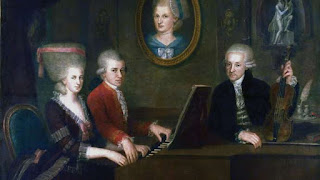Three Judgments that forged the Labour Party
Case One: Lyons v. Wilkins (1899)
In the case of Lyons v Wilkins, the Court of Appeal issued an injunction against the Society of Fancy Leather Workers from picketing their employer’s workshop. This ruling threatened to reverse the 1876 Trade Union Act which had permitted picketing in industrial disputes. This lent urgency to the argument that the unions needed independent Labour representatives in Parliament.
In response, the Trades Union Congress voted by 546,000 to 434,000 to meet with representatives of socialist societies, like the Fabians, with a view to forming a Labour Representation Committee. This body, established in February 1900, was created to run Labour candidates in the next general election.
Union support was limited at first, with just 10 out of over 1300 unions affiliating. Even among its supporters there was a tendency to view the LRC as another pressure group instead of a potential party of government. As a result the LRC was only able to field 15 candidates in December 1900 election, two of which were elected – Keir Hardie and Richard Bell.
Case Two: Taff Vale (1900-1)
In late 1900 the Amalgamated Society of Railway Servants went on strike over pay and conditions at the Taff Vale Railway Company. After the company employed ‘black leg’, non-unionised labour to break the strike, several strikers responded with sabotage, uncoupling carriages and greasing wheels. After two months the strike ended, with the strikers being forced to return to work on the same pay and conditions as before but with the company’s promise to engage with the union for collective bargaining in the future.
The company then decided to sue the union for damages, citing the loss of profits it incurred during the strike action, demanding £42,000, including legal costs. The company was successful at first but this ruling was overturned by the Court of Appeal. This brought matters to the House of Lords, which in 1901 ruled in the company’s favour. This decision threatened to remove the protection of trade union funds that had been guaranteed by the 1871 Trade Union Act, meaning every union that engaged in strike action risked bankruptcy.
This ruling led to a surge in union affiliations with the Labour Representation Committee, which saw 29 Labour MPs returned to Parliament in the 1906 election. Together with 24 trade unionists who had been elected as Liberals, they were able to convince the Liberal government to introduce the Trades Disputes Bill which, when it became law, protected unions from being sued for damages – and accepted the legality of picketing, so long as it was peaceful.
The growth in number of affiliated members, from 861,000 in 1903 to 921,000 in 1906, who were also required to pay a penny fee, also put the Labour Party on a better financial footing and enabling it to pay its MPs an annual salary of £200. This made it easier for working class men to stand for election and helped ensure greater party discipline.
Case Three: Osbourne Judgment (1909)
W. V. Osbourne was the Secretary of the Walthamstow branch of the Amalgamated Society of Railway Servants, the same union involved with the Taff Vale case. Osbourne, a Liberal, challenged the right of his union to charge its members a political levy that went exclusively to the Labour Party.
The House of Lords ruled that it was illegal for unions to demand a levy to support a political party. This decision reduced trade union financial contributions to the Labour Party by approximately £27,000 between 1909 and 1914.
In response the Labour Party launched a campaign to convince the Liberal government to take action, resulting, in 1911, in the introduction of a £400 annual salary for MPs. This was followed in 1913 by the Trade Union Act which allowed unions to create political funds but only upon a successful ballot and with the option for individual members to opt-out.
The creation of political funds was significant as previously the money spent to support candidates had come from general funds, meaning competing with other calls upon a union reserves. With a dedicated political fund the question was no longer whether to support parliamentary candidates but how many. As this change coincided with the expansion of union membership in the lead up to the First World War this greatly increased the financial resources at the Labour Party’s disposal, enabling it to field far more candidates by the time of the 1918 general election.
Zur Rezeption von Franz Kafka und Samuel Beckett in Rumänien
Receptarea lui Franz Kafka şi a lui Samuel Beckett în România Abstract Teoria receptării a înregistrat în ultimii ani o dezvoltare impresionantă, astfel încăt s-au putut trasa linii generale de descriere a unei direcţii de receptare în conformitate cu anumite tipologii estetice care marchează receptarea literară la nivel de receptor cult şi instruit. Acestea sunt premisele principale de la care porneşte cercetătorul în căutarea sa de modele şi modalităţi literare de receptare. S-a vorbit astfel de patologii de receptare, de estetica personajului şi nu în ultimul rănd de o receptare critică a operei literare. Sarcina cu care se confruntă cercetătorul în demersul său este de a descoperi în ce măsură opera examinată capătă caracter normativ la nivelul unui grup de receptori care aderă la stilul, forma şi limbajul literar al autorului receptat. Franz Kafka şi Samuel Beckett se integrează în categoria scriitorilor emblematici ai modernităţii şi drept urmare am considerat că un stud...

Comments